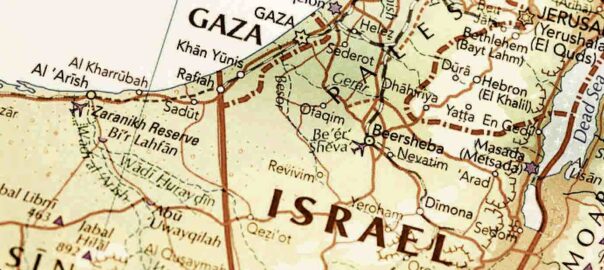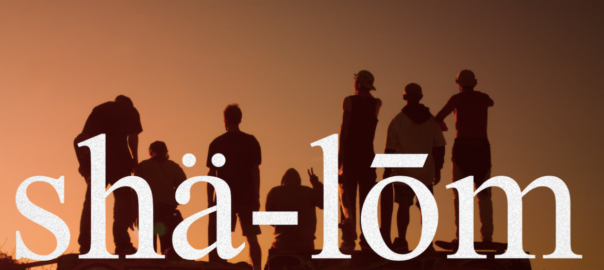
The recent Hamas-initiated violence against Israel has brought antisemitic voices to the public square once again. Thousands of rockets were aimed indiscriminately against a peaceful, tolerant nation. And for inexplicable, but predictable reasons, Israel was blamed for this latest “cycle of violence.” Though Israel is far from a perfect nation, she is the only multicultural democracy in the entire region and has offered generous peace terms for decades to leaders dedicated to her complete destruction. Calling Israel an “apartheid state” (she has nearly two million Arab citizens) and “Nazi-like” is inverted and perverted thinking of the highest order, especially when Hamas, Hezbollah, Islamic jihad, and Fatah (The PA military wing) all scream for her utter destruction and praise the policies of Hitler.
Before offering some ideas for peace, it is right that we remind ourselves of the positive contributions of Judaism to our world, even as Jews have faced racial and religious persecutions, pogroms, and the unutterable horror of the Holocaust.
Our Jewish neighbors bring three millennia of monotheism and morality, quests for justice and wisdom, and the foundations of individual dignity and socioeconomic fairness to our world. Christianity is built on these foundations and when it is not linked with coercive power, her adherents have shared with the Jews the values of compassion, love, and liberty. Tragically, Christian persecution of the Jews has been (and sometimes still is) an inexcusable part of her history and theology and was a foundation for the mutation of racist antisemitism that emerged in the 19th and 20th century and turned into industrialized murder by the Nazis.
Our Jewish neighbors have lived in the Middle East for over 3000 years. In spite of enforced emigrations, they never left Jerusalem and the surrounding areas completely. “Palestine” was a manufactured term by a vindictive Roman Empire in the 130s AD as they banished the Jews for their resistance and renamed Israel after their historic enemies the Philistines. The land that is now Israel was under Roman, Byzantine, Islamic/Ottoman, and from 1917 to 1947 British rule. There was never a cohesive Palestinian state or national identity – until Jews began to return to the land of their ancestors in the 19th and 20th centuries.
This return – led by a variety of Zionist movements – was not a military conquest. Land was purchased legally from the locals and with approval of the Ottoman Empire. Often the parcels purchased were of little value – desert and swampland, overpriced urban real estate, etc. With the help of global friends and much hard work, flourishing villages emerged and Jewish culture was revitalized. The end of World War I brought a surge of Jewish immigration, with the initial approval of the British and even the welcome of King Abdullah of Transjordan. With both League of Nations and local approval, a variety of plans were made for a homeland. Several Zionist groups agreed to an autonomous Jewish zone within Abdullah’s kingdom in 1922. Alas, the rise of the Muslim Brotherhood and the leadership of the Mufti of Jerusalem shattered such peaceful plans with their calls for violent jihad. From the 1920s to the present, all attempts at peace (including offering a co-capital in Jerusalem and 96% of territories gained by Israel in her victory of 1967) have been rejected. Yet Israel is blamed for her “occupation” and “oppression.”
Peace in the Middle East will only come when Arab leaders acknowledge the right of Israel to exist as the national homeland of the Jewish people and stop questioning her legitimacy and calling for her destruction. It is chic for some Western progressives to demonize Israel and see Palestinians as the oppressed, even to the point of calling Israel (and by extension all Jews) “White” colonizers! Such ignorance of anthropology, ancient and modern history, and the facts on the ground is appalling. The surge in global anti-Jewish violence is a direct result of such deceptive ideologies and narratives.
The enormous contributions of Jewish tradition and the current State of Israel are gifts to our world. Israeli global compassion, leadership in medicine, science, and technology, flourishing cultural expressions and willingness to cooperate with others are signs of goodness that no agitation propaganda can completely erase. Sometimes there are not two equal sides to every issue. In the case of Israel against the world, our Jewish friends have the high ground. Should Israel be criticized for some of her actions? Yes – and there is no livelier public square than Israeli politics! But turning our ears and eyes away from the real issues will not foster lasting peace.


